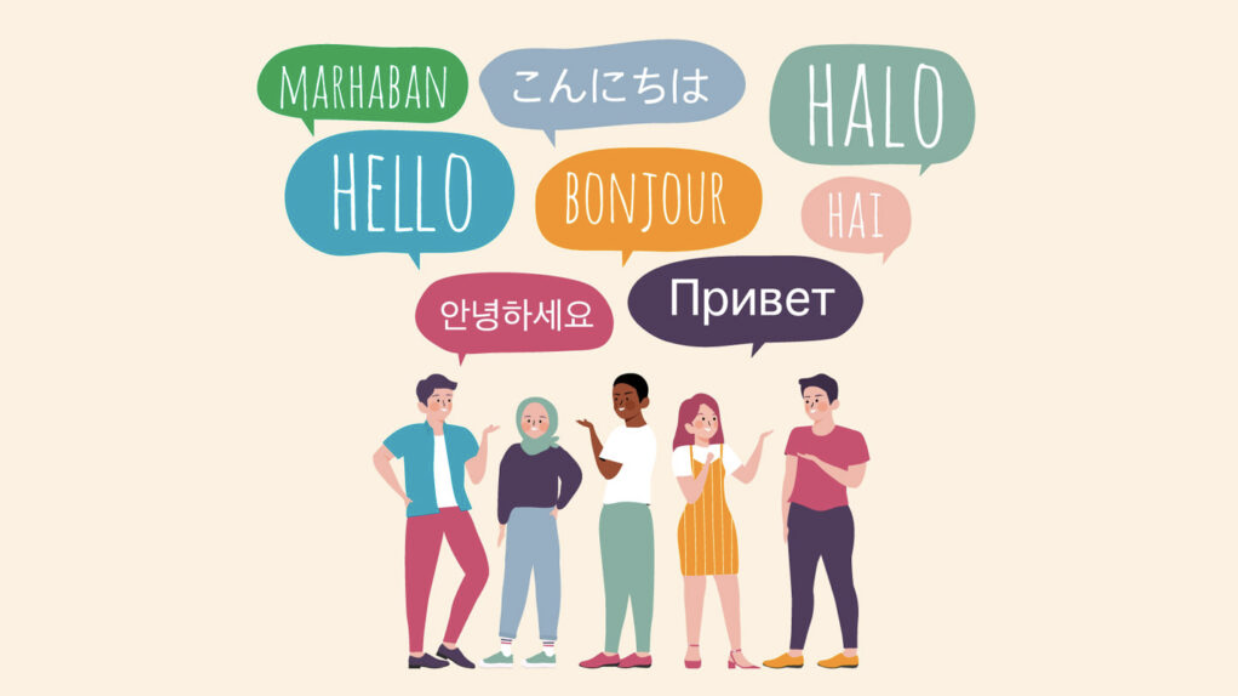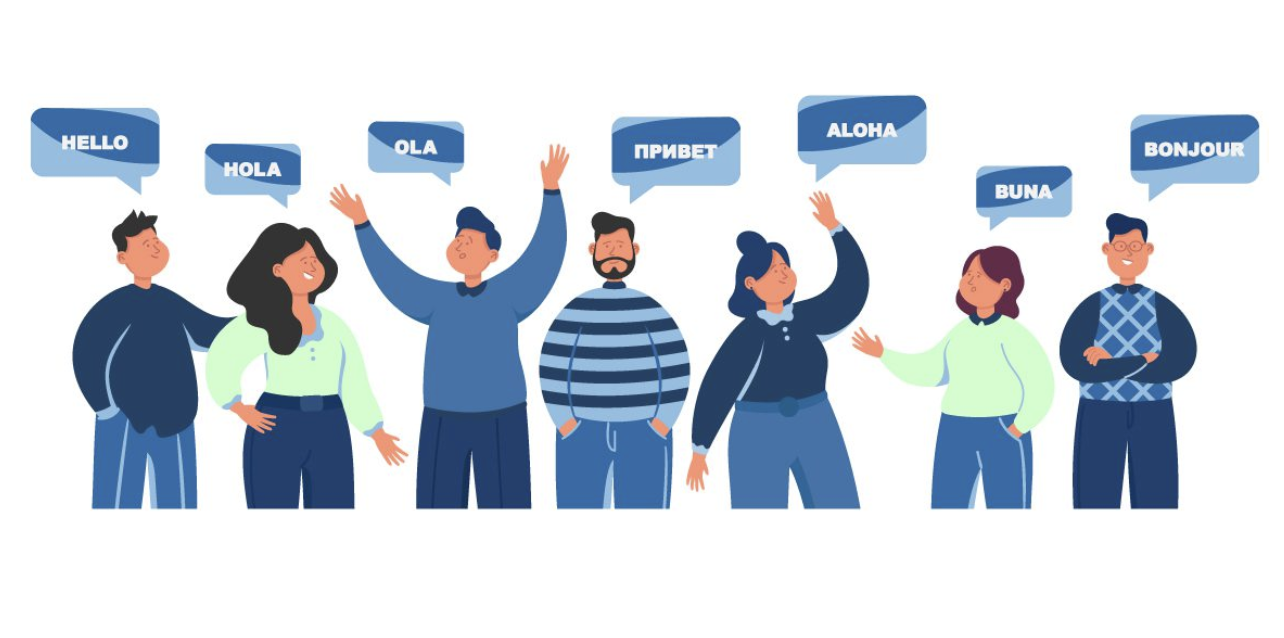Comments
- No comments found

As our world becomes increasingly interconnected, the need for translation services has grown exponentially.
Translation is not merely a technical task of transferring words from one language to another. It also involves understanding cultural nuances, values, and beliefs that shape language use and meaning. Thus, translators must uphold ethical standards that promote cultural sensitivity and responsibility in their work.

In this article, we will explore the ethics of translation and why it matters. We will examine the role of translators as cultural mediators who bridge linguistic and cultural barriers to facilitate communication between different communities.
We will also discuss the potential impact of mistranslations or misinterpretations on individuals and entire societies, highlighting the importance of accurate translation that respects diversity and promotes mutual understanding.
Understanding different cultures and their nuances is crucial in translation. Translating a text is not just about replacing words from one language to another, but also about conveying the intended meaning and cultural context accurately. It requires an in-depth knowledge of both languages and cultures involved in the process.
Without cultural understanding, the translation may lose its essence and fail to communicate the original message. The importance of cultural understanding in translation goes beyond mere accuracy. A translator must have empathy towards the culture they are translating for, as translations can influence how that culture is perceived by others.
Inaccurate or insensitive translations can be detrimental to a culture's image and lead to misunderstandings or even conflict between cultures. Therefore, translators have a responsibility to ensure that their translations are culturally sensitive and respectful. Cultural understanding also plays a vital role in preserving a culture's identity and heritage.
Through accurate translation of literature, art, music, and other forms of cultural expression, these works can be shared with people who may not speak the same language or come from the same background. Such translations can promote cross-cultural communication, understanding, and appreciation while also preserving cultural diversity.
Translators play a crucial role as cultural mediators in the globalized world we live in. They are responsible for accurately conveying the meaning of the source language while taking into consideration the target culture's norms, values, and beliefs. This requires translators to have a deep understanding of both languages and cultures they are working with.
Cultural mediation is not just about translating words, it involves interpreting cultural nuances that may be lost in translation. A professional translator must be able to recognize these differences and adapt their translation accordingly.
For instance, idiomatic expressions or colloquialisms may not have an equivalent phrase in the target language, requiring a translator to find alternative ways to convey the intended message.
The role of translators as cultural mediators goes beyond mere translation; they act as bridges between different cultures and facilitate communication between people from diverse backgrounds. As such, translators need to approach their work with sensitivity and empathy towards both cultures involved.
Ultimately, their aim should be to promote cross-cultural understanding and respect through their translations.
As cultural mediators, translators play a crucial role in bridging the gap between different languages and cultures. They are responsible for ensuring that the meaning and nuances of the source text are accurately conveyed in the target language. This requires not only linguistic proficiency but also cultural sensitivity and awareness. They may also require Localization services.
However, this task is not without its challenges. Translators must navigate complex issues such as differing cultural norms, values, and beliefs. They must also be aware of potential biases and stereotypes that may arise in translation.
These ethical considerations are essential to ensure that translations do not perpetuate harmful or inaccurate representations of other cultures. To navigate these challenges, translators must approach their work with a sense of responsibility towards both the source text and its intended audience.
This involves taking into account the context in which the translation will be read or heard, as well as any potential implications it may have. Ultimately, ethical translation requires a deep understanding of both language and culture, as well as a commitment to promoting cross-cultural understanding.
Respect for cultural differences
Avoidance of harmful stereotypes or biases
Accuracy and faithfulness to the source text
Sensitivity to context and audience
By prioritizing these considerations, translators can ensure that their work promotes mutual respect and understanding between different cultures. As global communication continues to expand, ethical translation has become more important than ever before in fostering connections across linguistic and cultural divides.
Mistranslation is a serious issue that can have harmful consequences. It's not just about getting the words right, but also understanding the cultural context behind them.
A mistranslation can cause offense or confusion, and in some cases, even lead to conflict. One example of this is the mistranslation of a speech given by former Iranian president Mahmoud Ahmadinejad in 2005. When he referred to Israel as 'the occupying regime,' the translation was incorrectly rendered as 'wipe Israel off the map.' This sparked an international outcry and increased tensions between Iran and Israel.
Another danger of mistranslation is that it can perpetuate stereotypes and misinformation. For example, when translating literature from one language to another, certain nuances may be lost or altered, resulting in an inaccurate portrayal of a culture or group of people. This can further reinforce stereotypes and biases that already exist.
Overall, it's important for translators to approach their work with care and responsibility. Mistranslation can have far-reaching consequences, both for individuals and for society as a whole. By prioritizing accuracy and cultural sensitivity, translators can help bridge linguistic and cultural divides instead of creating them.
From the dangers of mistranslation, we now move to promoting diversity and mutual understanding. As translators, it is our responsibility to recognize and respect cultural differences. This means not only accurately translating words but also conveying the intended meaning and context of the original text.
To promote diversity, we must understand that there is no single right way to translate a text. It is important to consider the target audience and the purpose of the translation.
For example, a translation for an academic journal may require a more formal tone while a translation for a children's book may need simpler language. By adapting translations to different contexts, we can better reach diverse audiences and foster mutual understanding.
Ultimately, promoting diversity through translation means recognizing that language is not just about words but also culture and identity. By respecting these differences in our translations, we can help bridge gaps between cultures and build connections based on mutual understanding.
It is our responsibility as translators to promote this kind of communication and ensure that all voices are heard.
As technology has advanced, so too has the field of machine translation. However, despite its many benefits, it is important to recognize the limitations of using machines over human translators.
One significant limitation is that machines lack cultural understanding and sensitivity. They are unable to comprehend idiomatic expressions, nuances in tone, or cultural references that may be critical to accurately translating a text. This can lead to mistranslations or misunderstandings that could have serious consequences.

Another limitation is that machines cannot account for context. They simply take words and phrases at face value without considering the broader context of a particular sentence or passage. This can result in nonsensical or inaccurate translations that do not convey the intended meaning of the original text.
In light of these limitations, it is clear that relying solely on machine translation is not sufficient when it comes to sensitive materials or nuanced texts. Human translators bring with them a level of cultural understanding and contextual knowledge that cannot be replicated by machines.
Therefore, while machine translation can be a useful tool in certain situations, it should never replace the importance of having skilled human translators involved in the translation services.
While machine translation has made significant strides in recent years, it is crucial to recognize its limitations. As a tool, it may provide a quick and convenient solution for some tasks, but it cannot match the complexity and nuance of human language. Machine translation lacks the cultural context necessary for accurate translations, often leading to errors or misunderstandings.
In contrast, human translators possess the cultural sensitivity and linguistic knowledge required to produce high-quality translations. However, this does not mean that they are infallible. Human translators must continuously learn and develop their skills to stay up-to-date with changes in language and culture.
In an ever-changing world where technology continues to shape our communication, translators must also adapt and embrace new tools to enhance their work.
Continuous learning and professional development are essential for any translator seeking to uphold ethical standards. This includes expanding their knowledge beyond just language proficiency, such as understanding cultural differences and sensitivities. By doing so, translators can ensure that their translations accurately convey the intended meaning while respecting the cultural values of both the source text and the target audience.
Ultimately, this is a responsibility that all translators share in promoting effective cross-cultural communication.
As ethical translators, it is crucial that we adhere to best practices when performing our craft. These practices not only ensure the accuracy of translations but also take into account cultural sensitivity and responsibility.
One of the most important aspects of ethical translation is understanding the source text's nuances and context. This means researching cultural references and idiomatic expressions to ensure that the meaning is carried over accurately.
Another essential element of ethical translation is maintaining neutrality. Translators should avoid imposing their personal views or beliefs onto the translated text. Instead, they should strive for objectivity while still conveying the original message's tone and intent. In addition, translators must always consider how their work might be received by different audiences, including marginalized communities.
Finally, ethical translation involves respecting intellectual property rights and avoiding plagiarism. Translators must ensure that they have permission to translate a text before doing so and credit all sources appropriately. Moreover, they should avoid taking credit for someone else's work or presenting a translated text as their own creation.
By following these best practices, translators can uphold their professional integrity and contribute to cross-cultural communication without causing harm or offense to anyone involved.
It is crucial to recognize that translation goes beyond the mere conversion of words from one language to another. Translation involves cultural understanding and requires translators to act as cultural mediators who promote mutual understanding and diversity.
In addition, ethical considerations are necessary in translation, and mistranslation can have severe consequences. Therefore, it is important for translators to continuously learn and develop professionally while following best practices for ethical translation.
It's essential to strive to promote cultural sensitivity and responsibility in translations while recognizing the limitations of machine translation.
By doing so, we can work towards creating a more connected world where language barriers do not hinder communication and understanding.
Felix is the founder of Society of Speed, an automotive journal covering the unique lifestyle of supercar owners. Alongside automotive journalism, Felix recently graduated from university with a finance degree and enjoys helping students and other young founders grow their projects.
Leave your comments
Post comment as a guest